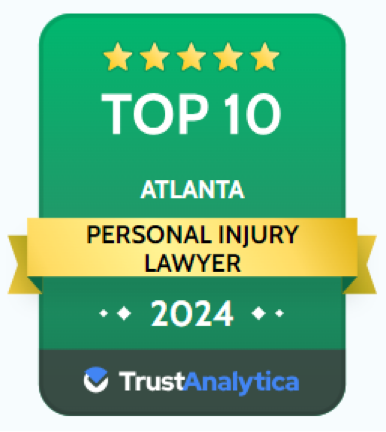All information provided about the law is very general in nature and should not be relied upon as legal advice. Every situation is different and should be analyzed by a lawyer who can provide individualized advice based on the facts involved in your unique situation, and a consideration of all of the nuances of the statutes and case law that apply at the time.
What Happens if You Get Caught Working While on Workers’ Comp?
An accident that causes you to miss work can lead to significant disruptions. Doctor’s appointments, complicated forms, and bills only add stress to your injury. What happens when you start working again to cover expenses? A workers’ compensation attorney can help advise you on how to return to work wisely.
Understandably, you might want to return to work while recovering. When an injury puts you out of work, it also puts you out of your routine. Workers’ compensation benefits might not cover all your typical bills. You might get a new job or return to work as you recover. But what happens if you get caught working while on workers’ comp? Are there consequences? How does this impact your workers’ compensation claim?
What is Workers’ Compensation?
Workers’ Compensation is an insurance program for workers who sustain injuries during the course of their employment. Workers’ compensation covers most, but not all, employers. If an employee is injured during work, they may be entitled to compensation for medical bills, wages, and disability benefits.
Medical Benefits
Your employer’s insurance will pay for qualifying medical bills in a workers’ compensation claim. Qualifying medical bills are for the treatment of the covered injury. They can include hospital visits, prescription drugs, and physical therapy. In some states, they may include necessary travel expenses, like reimbursement for mileage. It’s important to note that workers must typically go to employer-approved doctors. In some states, you can request a change in doctors from a provider-approved panel.
Wage Benefits
In many states, workers’ compensation provides wage replacement benefits to workers who cannot return to work permanently or temporarily after their injury. There is typically a waiting period ranging from three to seven days after the injury occurs or is reported. In many workers’ compensation claims, the wage benefit is a percentage of the injured worker’s average weekly wage subject to a state maximum.
Disability Benefits
Some injuries at work may lead to disabilities. These disabilities may be temporary and total, temporary and partial, permanent and total, and permanent and partial. The injured worker or their dependents receive benefits based on whether the disability is total or partial. The duration for which workers’ compensation pays those benefits depends on whether the disability is permanent or temporary.
Can You Work While on Workers’ Compensation?
Generally speaking, workers cannot work while receiving workers’ compensation benefits without notifying their employer. Workers’ compensation benefits provide a portion of the injured worker’s lost earnings alongside medical and disability benefits. Working without informing the employer can constitute fraud or theft in some states.
However, there are some states where the law expects you to work while receiving medical benefits under workers’ compensation. There’s variation between those states, so it’s worth looking at them in more detail below.
What Happens if You Get Caught Working While on Workers’ Comp in Georgia?
Knowing some specifics about Georgia’s workers’ compensation law can help answer this question fully.
Georgia Workers’ Compensation
Georgia law requires most businesses with more than three regular employees (full or part-time) to carry workers’ compensation insurance. Georgia’s workers’ compensation program is generally a no-fault exclusive remedy accident insurance program. No-fault means that the program does not consider granting benefits based on who caused the accident or injury. As an ‘exclusive remedy,’ employees cannot hold their employer liable for the injury when they accept workers’ compensation benefits.
Georgia workers’ compensation provides the medical, wage replacement, and disability benefits outlined above. The weekly wage benefit provides qualified injured workers with two-thirds of their average weekly wage up to a state maximum, subject to changes. Workers qualify for these benefits if they miss work for more than seven days. Georgia determines an injured worker’s average weekly wage by taking the sum of all your earnings in the 13 weeks before the claim divided by 13.
Caught Working While on Workers’ Compensation
An injured worker receives benefits from workers’ compensation to make them closer to their pre-injury earnings. The expectation is that the worker is recovering from their injury and cannot work. If an injured worker receives wage replacement benefits and the insurance company, employer, or citizen catches them working without reporting their earnings, that may constitute insurance fraud.
In Georgia, the punishment for this type of fraud could be a fine of up to $10,000.00 per violation and prison time of up to twelve months. However, there are other cases where working while on workers’ compensation is permitted.
Returning to Your Original Job
A doctor may allow an injured worker to return to work with restrictions as recovery progresses. This is commonly known as ‘light duty.’ A typical example of these restrictions is limits on the weight the injured worker can lift.
If the employer provides light-duty work and the employee can earn the same average weekly wage as before the claim, then the wage replacement benefits end. If there are qualifying medical and disability payments, those may continue for a determined set of weeks.
If working ‘light duty’ reduces pay, the injured worker should report their new earnings to Georgia’s State Board of Workers’ Compensation. They may qualify for a reduced wage benefit to make up to two-thirds of the difference between their pre- and post-injury earnings up to Georgia’s maximum. If the employee or employer fails to report or misrepresents those earnings, that may constitute fraud.
What if I Start Another Job?
Sometimes, a doctor may clear an injured worker for light duty, but the employer doesn’t have light duty available. The injured worker may decide to seek out other employment for many reasons. In these instances, the injured worker must report their earnings to their former employer and the Board. Like light duty work, benefits may be available if the earnings at the new job are less than the average weekly wage from before the injury.
What If I Worked Two Jobs Before I Was Injured?
It’s common to hold multiple jobs at the same time. The law calls this, ‘concurrent employment.’ Sustaining a covered injury at one job may prevent a worker from working at their second job. What happens in these cases?
If the employers are similar, workers’ compensation considers the wages of both jobs when determining the average weekly wage for the past 13 weeks. Generally, courts consider employment similar when it involves similar tasks and duties, not when the employers are in similar industries.
It’s possible that a worker can return to one job but not the other, in which case the same rules would apply. To maintain benefits and avoid potential criminality, workers should report any earnings they receive while on worker’s compensation in Georgia.
Can You Work While on Workers’ Comp in Alabama?
Workers’ Compensation law in Alabama differs from Georgia’s, so it’s worth understanding some of Alabama’s unique provisions before seeing how they impact working while receiving workers’ compensation benefits.
Workers’ compensation is generally a no-fault exclusive remedy in Alabama that provides medical, wage replacement, and disability benefits. Some exclusions apply, and in some instances, an employee may be able to hold an employer liable for the injury.
Unlike Georgia, the waiting period is shorter at three days rather than seven. Workers can qualify for payments after a work injury keeps them from work for more than three days. If the injury lasts longer than 21 days, workers’ compensation will pay for the first three days.
Also, the average weekly wage is determined using the prior 52 weeks rather than 13, as in Georgia. Alabama sets the wage replacement benefit at two-thirds of the average weekly wage. However, Alabama has a different maximum than Georgia.
Like Georgia, there are a variety of complex situations regarding working while on workers’ compensation.
Returning to Work in Alabama
Alabama workers’ compensation law contains provisions similar to those of light duty in Georgia, allowing doctors to recommend a return to work with restrictions. If the earnings are less than before the injury, Alabama workers are entitled to two-thirds of the difference between their earnings before and after the injury.
Working a Second Job Before Injury
If workers had two or more jobs when injured at work, all their earnings may count towards their average weekly wage. The primary consideration in Alabama is whether or not the employers were subject to Alabama’s employer requirements.
In other words, if the law requires all the injured worker’s employers to pay workers’ compensation benefits, then the injured worker can count their earnings from those employers to determine their average weekly wage.
Suppose a doctor clears the worker to return to one but not the other job. In that case, the worker should report their earnings to the workers’ compensation provider to ensure they receive the correct benefits until they can return to the other job or the claim ends. Failure to do so could result in all the benefits terminating.
Can I Get A New Job While on Workers’ Compensation?
During recovery, an injured worker might want a new job. Generally speaking, obtaining new employment while on workers’ compensation is treated like returning to work at your original employer.
According to the AL Code § 25-5-57 (2023), an injured worker should report their new job, earnings, and contract to their former employer in writing. Temporary partial disability payments cease until the former employer receives the written affidavit.
It’s generally advised that any new job an injured worker accepts stays within their doctor’s orders. Working strictly within those parameters makes it harder for the former employer to reject partial or total disability benefits, claiming that you can do the same work as before the injury.
Penalties for Working While on Workers’ Compensation
As seen above, working while on workers’ compensation is legal in a few situations. However, if a worker decides to return to work but fails to report new earnings or tries to misrepresent those earnings, it could lead to significant punishment in Alabama.
It’s important to remember that employers purchase workers’ compensation policies through insurance companies. Paying out claims cuts into insurance companies’ bottom lines, so it is in their interest to find reasons to stop paying benefits. These companies have the staff and resources to investigate suspected fraud and bring cases against injured workers.
In Alabama, knowingly making false statements—like not reporting earnings—in workers’ compensation claims is considered a Class C felony. If convicted, Class C felonies carry a sentence of one to ten years in prison and a $5,000 fine.
What Are You Allowed to Do While on Workers’ Comp in Florida?
In Florida, Workers’ Compensation provides injured workers with medical, lost wage, and disability benefits while they recover from injury. Florida expects injured workers to rest and heal rather than work while receiving workers’ compensation benefits.
Florida Workers’ Compensation Law
Florida is another no-fault state for workers’ compensation. Like Georgia and Alabama, the lost wage benefit pays two-thirds of the injured workers’ average weekly wage based on the average of the 13 weeks before injury. It also has a maximum average weekly wage, which is updated yearly.
The employer’s workers’ compensation insurer will provide an authorized physician, pay for qualifying medical care, and pay disability and lost wage benefits. Like Alabama, Florida’s benefits don’t start until the eighth day a worker cannot work. If a worker is out of work for more than 21 days, they can receive benefits for the first seven missed days.
Can You Work While on Workers’ Compensation?
Generally speaking, you cannot continue working while receiving workers’ compensation benefits. As in other states, Florida workers’ compensation intends to assist a worker as they recover from an injury temporarily. Returning to work or starting new employment demonstrates that the injury was not disabling or that the worker fully recovered. In either case, benefits will end.
Like those in Alabama and Georgia, workers in Florida cannot work ‘under the table’ or off the books to receive income and lost wages benefits. In addition to insurance companies vigilant for fraud, Florida has an entire Bureau of Workers’ Compensation Fraud tasked with finding and investigating workers’ compensation fraud cases.
Workers’ compensation fraud is a felony offense in Florida. Depending on the amount of the fraud, a conviction could result in up to 30 years of prison time. It’s also important to know that while your employer isn’t obligated to reserve an injured worker’s job, they cannot fire a worker for filing a workers’ compensation claim. Nor can they coerce an injured worker to return to work before a doctor has cleared them.
It’s best to consult with a trusted workers’ compensation attorney to better understand what is required when working while receiving workers’ compensation benefits.
Return to Work Rules in Florida
Once a doctor determines that an injured worker has reached their maximum medical improvement—continued treatment can’t improve their condition further—they will recommend a return to work. The return to work may be a complete return to work or a light-duty assignment. If it’s a complete return to work and there are no permanent disability benefits, then the workers’ compensation claim is complete.
However, if it is a light-duty assignment, the claim may remain open if light-duty results in reduced earnings for the injured worker. In Florida, if the restrictions cause a loss of more than 20 percent of pre-injury earnings, there may be temporary partial disability benefits to make up a portion of the difference.
If the doctor clears a worker for light duty but no light-duty assignment is available, it could jeopardize benefits. According to FL Stat § 440.15 (2023), failure or refusal to return to work results in forfeiture of lost wage benefits. An injured worker who doesn’t have light-duty work available should have their employer notify the workers’ compensation provider immediately in these cases.
What if I Work Multiple Jobs?
Florida, like Alabama, allows injured workers to factor in wages from multiple employers in their workers’ compensation claims. As long as those employers are required to have workers’ compensation insurance, workers can count those wages.
An injured worker should wait until a doctor clears them before returning to any of their jobs, regardless of if it was the one they were injured on. If a doctor recommends a worker go on light duty at one job but not the other, it’s essential to disclose those earnings to the other employer. Doing so can avoid a complete termination of lost wage benefits and any accusations of fraud. Especially if working one but not both jobs results in less average weekly earnings than before the injury.
Medical benefits should also continue after a worker returns to light duty at one of their jobs. Again, failure to notify employers of these changes could result in the provider cutting off all benefits. A loss in benefits could be problematic if a worker is reinjured while working light duty.
Can You Collect Workers’ Comp and Still Work in Tennessee?
In some instances, working while still receiving partial workers’ compensation benefits in Tennessee is possible. Whether one continues or returns to work depends on various factors, so it’s important to fully understand Tennessee’s workers’ compensation laws.
Tennessee Workers’ Compensation
Tennessee workers’ compensation law is similar to the other three states discussed above. It is a no-fault exclusive remedy for workers designed to disburse benefits quickly so workers can return to normal.
Tennessee workers’ compensation provides medical and partial wage replacement benefits, which include temporary and permanent disability benefits. Tennessee calculates partial wage replacement benefits at two-thirds of the injured worker’s average pre-injury weekly wage. Unlike other states, Tennessee allows a maximum benefit of up to 110% of the average weekly wage.
Can I Keep Working at My Job?
Typically, you cannot continue working while receiving workers’ compensation benefits in Tennessee. Tennessee employers expect and understand that the injury sustained at work, called a compensable injury in Tennessee, prevents you from working.
In certain circumstances, Tennessee might consider continuing to work or starting a new job while receiving workers’ compensation benefits, a type of theft punishable by fines and imprisonment.
As in other states, this can depend on whether a doctor cleared an injured worker to return to work, the new employment, and whether the injured worker notified their employer of their job.
Light-Duty in Tennessee
During recovery, there may come a time when the approved physician clears the injured worker to return to work with restrictions. In Tennessee, like in other states mentioned above, this is known as ‘light-duty.’
Workers cleared for light duty must report to work. Otherwise, providers may terminate temporary disability benefits. Workers should provide detailed documentation from their doctor regarding their restrictions at work to ensure their employer can meet all those recommendations.
If the light duty work results in lower earnings than before the injury, the temporary partial disability benefit provides two-thirds of the difference between the pre-injury and light duty wages.
What if I Work a Second Job?
If an injured worker had two jobs when their injury occurred, Tennessee requires that both employers provide workers’ compensation benefits to the injured worker. The main exception is that Tennessee’s workers’ compensation laws must cover both employers.
Again, an injured employee who can return to one job but not the other should disclose those earnings to the other employer to avoid accusations of theft and to maintain potential benefits. The worker should only perform the duties permitted by the doctor to prevent attempts by the employer or their insurance to terminate benefits. Tennessee, like many other states, has programs in place to report and investigate fraud.
Montlick. We Work While You’re On Workers’ Comp.
Navigating a workers’ compensation claim alone can be overwhelming. There are the challenges of recovering from an injury, coupled with the stress and fear that come with uncertainty. Unfortunately, insurers want you to feel this way because it lets them give you less. That mistreatment strains budgets and pressures an injured worker to start working again.
At Montlick, we have an experienced team of workers’ compensation attorneys who advocate for our clients before the insurance company has a say. We help our clients throughout their claims, fighting for the maximum compensation they’re owed.
Contact us today to see how Montlick can make a difference. Your initial consultation is free.
How useful is this for you?
Would you like to speak with an attorney?
Call NowRelated Questions
We Win More than Settlements.
We win the peace-of-mind you need to get your life back.
At Montlick, we believe comprehensive legal representation is a right, not a privilege. That’s why we provide our services on a contingency fee basis. You only pay when we win.








